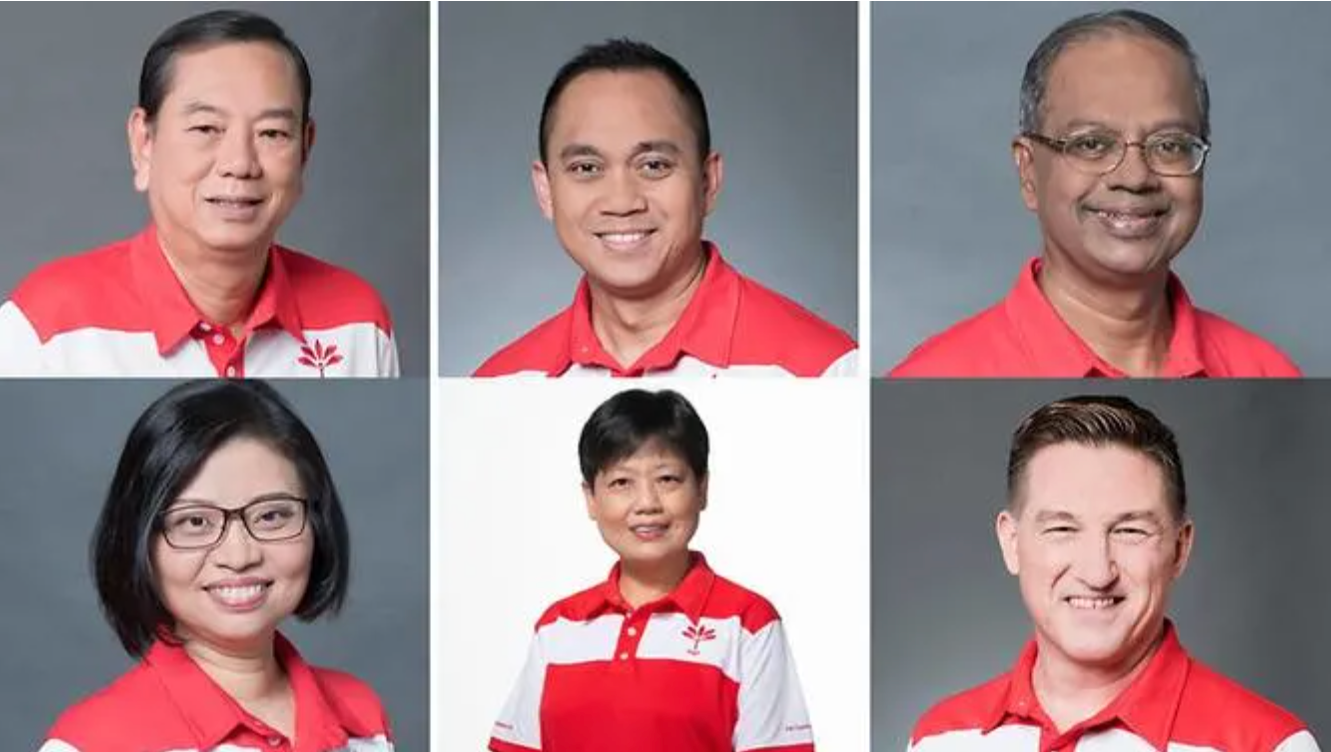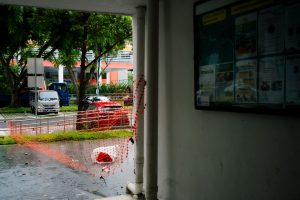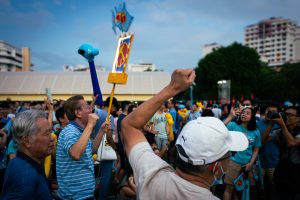The Progress Singapore Party (PSP), founded by Dr Tan Cheng Bock, unveiled six new candidates this morning, making it one of the first political parties to introduce candidates ahead of an impending election.
The six members are:
– Brad Bowyer (53), a media professional and SME owner;
– Francis Yuen Kin Feng (70), a former SAF scholarship holder with experience in the military and private sector;
– Gigene Wong (54), the CEO of Gulf Oil China and CFO of another Shenzhen-listed company;
– Hazel Poa (50), founder of several educational enterprises and former Administrative Officer in the civil service;
– Muhammad Taufik Bin Supan (40), an IT professional “schooled in the university of hard knocks”; and
– Sri Nallakaruppan (56), a chartered accountant and former auditor with Ernst & Young.
In a press conference that lasted two hours, party members espoused their vision for Singapore, and elaborated on specific policies they would advocate for if elected.
Francis Yuen emphasized the need for a major economic restructuring post-Covid. He called for an urgent pivot towards SME-driven growth, arguing that the government has not done enough to create a supportive ecosystem for SMEs. In particular, he called for policies that would help SMEs digitalize, expand into overseas markets, and pursue “blue-ocean strategies”.
Although statutory boards like Enterprise Singapore (ESG) and the Economic Development Board (EDB) have been pursuing these growth strategies for years, PSP members felt that current policies have been largely ineffective, or at least, insufficient. “Our SMEs are subjected to a lot of unfair competition,” said Mr Yuen. “The current schemes offered to them may not meet the needs of what they want.”
Mr Yuen attributed this in part to the lack of political will in fully committing to a SME-backed growth policy, arguing that Singapore has been too reliant on MNCs and GLC-led growth over the past few years. Instead of hand-holding SMEs, Mr Yuen says one of his top priorities would be to give room to SMEs to grow, especially regionally, and create sustainable businesses that last. “Can we produce the next Alibaba or Google?”
Sri Nallakaruppan added that although government policies have been subsidizing on the labour front, they have been inadequate in addressing the other cost factor that SMEs struggle with rent. “It is time for the government to review exorbitant rents,” he urged, arguing that the growth of REITs (Real Estate Investment Trusts) have led to a narrow focus on maximizing shareholder value. “Every year rentals increase by 5%, which eats up into margins. A lot of SMEs have folded up. Many can’t cope financially.”
Brad Bowyer added that while current policies were no doubt well-meaning, gaps still emerged in practice, citing the myriad “rules, regulations, and red tape” as one example. Mr Bowyer also questioned whether these statutory boards were staffed with the right expertise. “The problem is, business people trying to do business are being regulated by people who’ve never run a business in their life. They’re not being managed by people who understand what the needs of businesses are.”

Members also pointed out that restructuring the economy into one that encourages entrepreneurship required a radical rethinking of our education system. Said Mr Nallakaruppan, “We need to encourage our graduates, polytechnic diploma holders to take risks.” He floated the possibility of creating more incubator programmes that could provide seed funding to aspiring entrepreneurs.
Mr Nallakaruppan also criticized Singapore’s government scholarship program for directing too many talents towards the civil service, at the expense of the private sector. Stressing that Singapore needs a mindset shift, Nalla pointed out that young people today are not as willing to take risks to venture into new professions or industries.
Ms Poa similarly criticized our education system for not preparing students well for the future economy. “Our current system is very exam-centric, and it rewards behaviour that’s regurgitating perfect answers. If you want to encourage creativity and innovative thinking, you want students to question those answers and explore new ones.” Hazel added that the high-stakes exams (such as the PSLE, O Levels, and A Levels) created a harmful culture of constant stress that teaches students to peg their self-worth to their grades.
In response to a question about whether Ms Poa contributes to, and benefits from, the very culture of stress she criticizes as the owner of several successful tuition agencies and a private school, Ms Poa said that her decision to run for office was precisely motivated by her experience in the tuition industry. She saw firsthand how stressed students were over examinations, and hopes to change this if voted into parliament.
She added that exam culture bred competition amongst students, encouraging individualistic over collaborative behaviour. She hopes that future education reforms can put more emphasis on teamwork and collaboration, as well as pivot towards longer industrial attachments that would focus more on process-oriented learning rather than simply a results-oriented one.
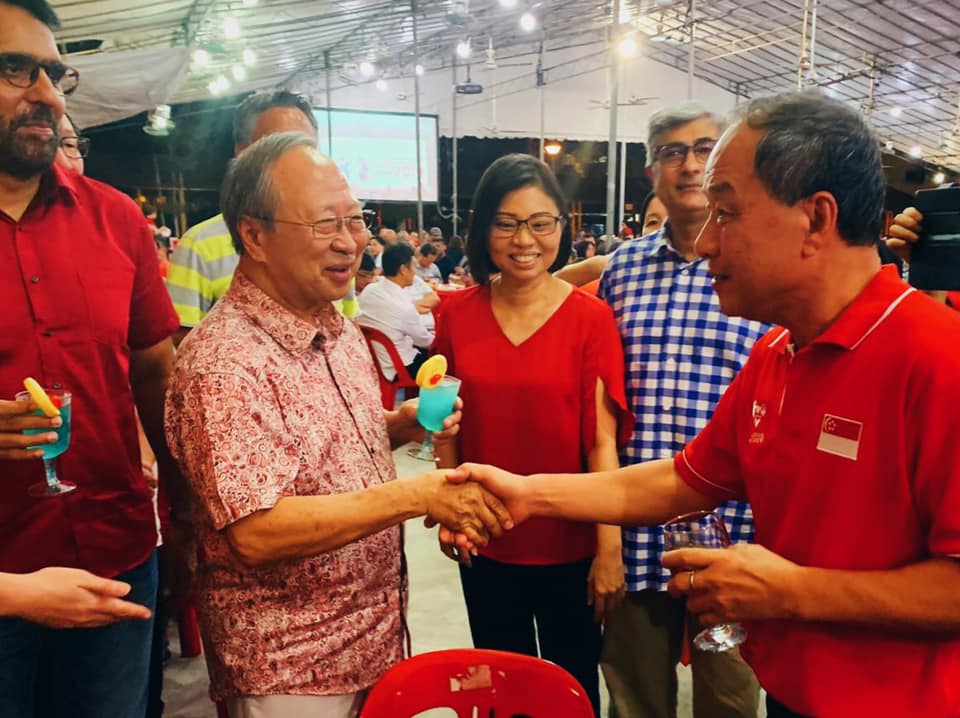
Many also stressed the need for diverse representation in parliament—one that would include not just civil servants and paper generals with impeccable academic credentials, but also the common man with a heart and hunger to serve. Dr Tan Cheng Bock, Secretary-General of the PSP, emphasized that PSP’s candidates came from all walks of life—some with backgrounds similar to those fielded by the ruling party, but others with much more varied experience, including leaders of MNCs, publicly-listed companies, and owners of SMEs.
Mr Yuen for example has experience in both the SAF and the private sector, and was honoured with the Magnolia Award from the Shanghai government for his contributions to their economy.
Said Mr Yuen, “I chose to leave the SAF at the peak of my career because I wanted to learn more about the real world outside. I only learned about real life in the private sector, understanding how the market and economy works, really learning the intricacies of what it takes to run a successful business.”
Francis says his experience as a business leader taught him about the importance of listening to people, and understanding their concerns. Whenever he visited clients, he would ask them not to tell him what was right, but what was wrong, so he could further improve the business.
Dr Tan also cited Taufik Supan as an example of someone who brings unique life experiences to the table, as someone who worked odd jobs to pay for his own tertiary education, and who successfully graduated with a masters degree with honours. Taufik says that as someone who experienced retrenchment, he understands Singaporeans’ fears about unemployment amidst a looming recession. He also empathises with Singaporeans’ concerns about the high cost of living, and hopes to be a champion for the underprivileged and low-income if elected.
Mr Supan says he also hopes to champion issues pertaining to the Malay community, adding that he was “very concerned about issues to its progression”. Instead of just “scratching the surface”, Taufik stressed that he wanted to conduct a “deep dive” into the underlying causes, citing education, poverty, inequality, and discrimination as some areas he planned to focus on.
Other members stressed the need for a credible opposition to take the government to task, and call attention to its faults when it makes mistakes.
Ms Poa cited the recent Covid-19 outbreak amongst the migrant worker dormitories as an example: “We have the Foreign Employer Dormitory Act (FEDA), but there was no commissioner appointed to enforce this piece of legislation. It shows a lack of will, and proper enforcement. Josephine Teo, the Minister for Manpower, herself admitted that 20 out of 43 dorm operators are flouting licensing requirements—a rather alarming figure. Now we are paying the price for neglect—hundreds of billions of dollars—not even considering the job losses that have happened and will happen over the course of the year.”
Framing her decision to enter politics as one motivated “out of a strong sense of necessity”, Ms Poa explained that had the political scene in Singapore been vibrant, she would probably have eschewed politics because she was shy of the limelight. However, the cited several “disturbing developments” such as constitutional changes to the Elected Presidency, lawsuits against people who spoke up, and POFMA as examples that reinforced her desire to remain in politics even after two previous unsuccessful runs.
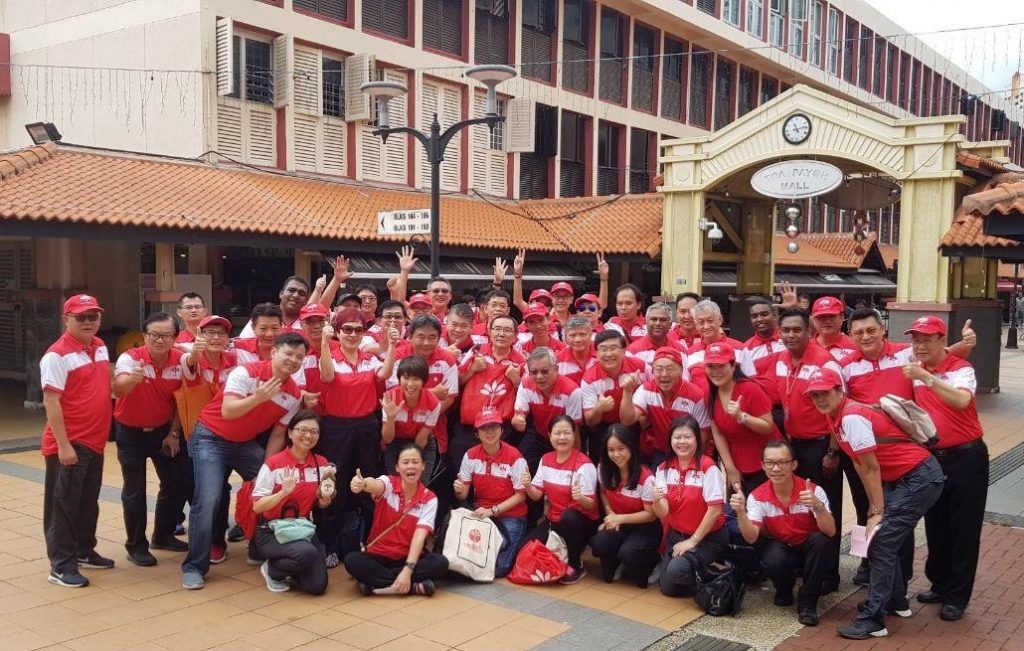
Perhaps the defining factor of PSP is how much it emphasises the values of compassion. Party members constantly referenced the need for a more compassionate government, one that truly listened to its people, and was sincere in its desire to serve. This can be seen in the PSP’s approach towards accepting members—“Their heart must be in the right place,” said Dr Tan. “Their reason for joining this political party must be to serve the people, serve this country.”
Mr Supan emphasized that he was here to serve the people, and not just the economy—“I believe in investing in our people first.”
Members pointed to the need for a fundamental shift in the current compact between government and society, arguing that the ruling party has prioritized economic growth over the welfare of its people. Members cited Singapore’s high cost of living and high income inequality as indicators that the incumbent has not done enough to ensure that our national prosperity has truly benefited all in society, and expressed a desire to see more inclusive policies in future.
PSP members described their desire to run for office as “a calling to serve.” Choking a little, Ms Poa admitted, “The path we pick is not easy. It’s really easy to give up. I finally joined a party that is very compatible with my own values. I definitely won’t let any people or events get in the way this time.”
Party members also reiterated calls for the general elections not to be held amidst this crisis, with Dr Tan saying that “they may win the battle but lose the war”. Dr Tan expressed concerns about potential clusters forming after the elections, a risk that is particularly high for older voters. Party members echoed Dr Tan, arguing that a government that put the welfare of its people first would not be conducting elections now.
Nonetheless, with Singapore entering Phase 2 today and with the Elections Department (ELD) issuing campaign guidelines yesterday, it appears that elections are imminent.
With only three minutes of campaign time for televised political broadcasts allocated to each candidate, it remains to be seen how newer opposition parties can reach out to voters, particularly since physical rallies have been disallowed. Still, Mr Bowyer expressed confidence in the PSP’s communications strategy, explaining that the team has remained active through its various communication channels including Telegram, Wechat, and various social media platforms.
Dr Tan highlighted that the PSP plans to lay the groundwork for younger Singaporeans to come and take over, and speak for what is right without fear of repercussions, stressing that the PSP plans to stay in politics for the long term.
“All new parties have growing pains,” said Dr Tan, perhaps referencing the numerous gaffes and membership changes that seem to have plagued the party in recent months. Still, he remains hopeful that the party can differentiate itself through its clear commitment to serve, its credible slate of candidates, and its progressive vision for the future.

